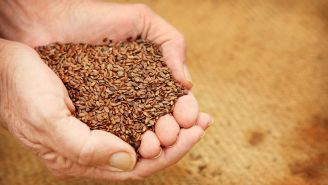Updated on March 11, 2024.
Atrial fibrillation (AFib) is a quivering or irregular heartbeat that can lead to blood clots, stroke, fatigue, heart failure, and other heart problems. Up to 6 million Americans are living with AFib, and it’s estimated that as many as 12 million will have it by 2030, according to the Centers for Disease Control and Prevention.
If you have Afib, the condition may be present all the time, or it may come and go. The risk of developing AFib increases with age, and it’s often found with other heart diseases or as a complication after heart surgery. Other risk factors for AFib include hypertension (high blood pressure), obesity, diabetes (high blood sugar levels), hyperthyroidism (overactive thyroid), sleep apnea (when breathing repeatedly stops and restarts during sleep), moderate to heavy alcohol use, and smoking.
People with AFib are at risk of forming clots in the upper chambers of the heart because those chambers don’t empty properly, allowing blood to sit and clot. If a clot breaks off, it can flow into a blood vessel that runs to the brain, leading to a stroke. To prevent clots, patients with AFib are typically treated with blood thinners.
Know the symptoms of AFib
Some people don’t realize they have AFib, but many have symptoms that may include:
- Racing, fluttering, pounding, or irregular-feeling heartbeat (called palpitations)
- Fatigue
- Dizziness, lightheadedness, or fainting
- Shortness of breath
- Anxiety
- Weakness
- Sweating
- Chest pain or pressure
How to avoid complications of AFib
If you have AFib, there are several ways you can reduce your risk of complications. These include:
- Getting regular physical activity as you are able, with guidelines set by your healthcare provider (HCP)
- Controlling cholesterol levels and eating a heart-healthy diet that is rich in fruits and vegetables, and low in salt, saturated fats that are solid at room temperature, trans fats usually found in processed and junk foods, and cholesterol (a type of fat found in the blood)
- Managing high blood pressure
- Avoiding excessive amounts of alcohol and caffeine
- Not smoking
- Managing stress
Understand the treatment options
In addition to preventing blood clots and heart failure, treatment for AFib may include medications to reduce a high heart rate and to restore the heart to a normal rhythm.
Electrical cardioversion is a procedure in which a small electrical shock is applied to the outside of the chest. It can bring the heartbeat back to a regular rhythm, but in some cases AFib may return. Medications may be needed over the long term to keep the heart’s rhythm and rate in the ideal range.
Ablation is a procedure that is used when medications or electrical cardioversion are not preferred or not effective. In ablation, a catheter (a thin, flexible tube) is inserted into a blood vessel and guided to the heart. The catheter delivers energy in the form of heat, laser, or freezing to scar the problem areas of the heart so they no longer send abnormal signals.
Take your medications as prescribed
If you are placed on medication, it is important that you never miss a dose. Be sure you fill your prescriptions in plenty of time so you don’t run low. Ask your HCP about any medication interactions.
If you are on blood thinners, you should avoid aspirin or other non-steroidal anti-inflammatory drugs (NSAIDs) such as ibuprofen and naproxen, unless your HCP advises you to use them. Remember to discuss with your HCP any vitamins or supplements you plan to take. It is also important to minimize any risk associated with activities that may cause injury or bleeding, such as contact sports like soccer or football.
Developing an action plan with your HCP is a valuable step toward managing your AFib. This plan may include your treatments and goals, such as desired heart rate. It may also describe the frequency of tests you need to take to monitor blood thinners, any dietary or activity restrictions you may need to observe, and any necessary follow-up appointments.







